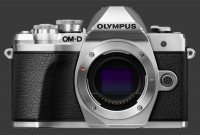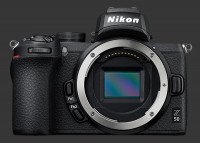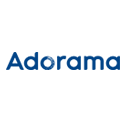Nikon Z50 Samples
Nikon Z50 Comparative Crops
The real challenge when choosing a mirrorless system is getting a clear picture of the compromise between image-quality and size. The Comparative Crops below were chosen to show how the Nikon APS-C mirrorless compares to the smaller Micro Four-Thirds system which is built around a 2X crop-factor, allowing those cameras and their lenses to made made considerably smaller. For this purpose the Nikon Z50 is compared here to the Olympus OM-D E-M10 Mark III
Olympus OM-D E-M10 Mark III. While the Olympus is only a little lighter, it packs even more features, including a similar EVF, and manages to fit a 5-axis image-stabilization system. Plus, Micro Four-Thirds lenses can be made smaller and much lighter than APS-C ones.
All images below are 100% unmodified crops from their respective cameras. Both ISO and custom white-balance were fixed in-camera and the aperture was set be optimal for each lens. As usual, both these cameras were calibrated to give the highest quality and most realistic results possible.
These crops help determine which ISO settings can be acceptably used on these cameras. As image noise increases, most cameras compensate with noise reduction which introduces softness. The point at which a print become unacceptably noisy is a matter of personal taste.
| Nikon Z50 | Olympus OM-D E-M10 Mark III |
|---|---|
 ISO 100 |
 ISO 100 |
 ISO 200 |
 ISO 200 |
 ISO 400 |
 ISO 400 |
 ISO 800 |
 ISO 800 |
 ISO 1600 |
 ISO 1600 |
 ISO 3200 |
 ISO 3200 |
 ISO 6400 |
 ISO 6400 |
 ISO 12800 |
 ISO 12800 |
 ISO 25600 |
 ISO 25600 |
The above crops show the remarkably similar output of these cameras, despite a substantial difference in sensor-size. The first observation is that image-noise is virtually the same at low to mid ISO sensitivities. This is what people look at the most and shows that a modern Micro Four-Thirds camera can maintain just as low image-noise as an APS-C camera until ISO 1600. Color rendition is visibly different with these cameras but both offer a considerable degree of control over it. The more important different is that at all ISO settings, the Nikon Z50 captures more dynamic-range which is clearly visible in shadow areas. Essentially, this is the difference guaranteed by sensor-size. Wider dynamic-range requires a larger sensor which requires larger lenses that are heavier due to simply needing more glass.
 |
Please Support Neocamera
All information on Neocamera is provided free of charge yet running this website is a huge endeavor. Purchases made via affiliate links found throughout the site help keep it running and up-to-date. There is no additional cost to you, so please consider buying via these links to our affilates:
If you found any information on this site valuable and did not purchase via our affiliate links, please considering donating via PayPal:
Any amount will be greatly appreaciated. Thank you for your support!
Nikon Z50 Highlights

Sensor-Size: 24 x 16mm

Actual size when viewed at 100 DPI
| 20 Megapixels Mirrorless | ISO 100-204800 |
| Nikon Z Mount 1.5X FLM | Shutter 1/4000-30s |
| 0.39" Built-in EVF 2.4 Megapixels (0.68X) | Full manual controls, including Manual Focus |
| Automatic Eye-Start sensor | Custom white-balance with 2 axis fine-tuning |
| 1 Axis Digital Level | Spot-Metering |
| 11 FPS Drive, 71 Images | Hot-Shoe |
| 3840x2160 @ 30 FPS Video Recording | Stereo audio input |
| 3.2" LCD 1 Megapixels | Lithium-Ion Battery |
| Secure Digital Extended Capacity |
Updates
2024.11.18

Best 2024 Photography Gifts for Every Budget
Great gifts for photographers and photo enthusiasts selected for every budget among the best products of 2024.
2024.08.07

Eye Protection Tips for Professional Photographers
The four main considerations for professional photographers regarding eyewear.
2024.07.14

Fujifilm X100VI Review
Flagship fixed-lens compact digital camera with a 40 MP sensor and Image-Stabilization, a first for the series. Retro design featuring dual control-dials, plus direct ISO, Shutter-Speed and EC dials. Its hybrid viewfinder can switch between EVF and OVF mode.
2024.05.09

Fujifilm GFX100 II Review
Flagship 102 Megapixels Medium-Format Mirrorless Digital Camera with 8-Stop 5-Axis IBIS, 8 FPS Drive, 8K Video and 400 MP Super-Resolution capture in a weatherproof and freezeproof body with dual control-dials and dual memory-card slots.
2024.04.03

Fujifilm X-T5 Review
Newest Fujifilm flagship boasting a 40 MP APS-C sensor, 5-axis IBIS with 7-stop efficiency, 15 FPS continuous drive, 6.2K Video capture, dual control-dials and dual SDXC UHS-II slots in a sturdy weatherproof and freezeproof body.
2023.11.20

Best Digital Cameras of 2023
Find out which are the Best Digital Cameras of 2023. All the new Mirrorless Digital Cameras from entry-level to high-end professional.
2023.07.10

Fujifilm X-H2 Review
40 Megapixels APS-C Hybrid Mirrorless Digital Camera with 7-stop IBIS. Fastest shutter ever and 8K video capture. Large builtin EVF with 0.8X magnification and 5.8 MP, plus an Eye-Start Sensor. Packed with features and large number of controls in a weatherproof and freezeproof body.
2023.05.07

Sony FE 20-70mm F/4G Review
Review of the unique Sony FE 20-70mm F/4G lens. The optical zoom of this lens spans ultra-wide-angle and medium focal-length coverage, making it one of the most versatile Full-Frame lenses on the market.
2023.01.15

Huion Inspiroy Dial 2 Review
Review of the Huion Inspiroy Dial 2 tablet, a medium sized drawing surface with dual dials and customizable buttons. Connects via USB-C or Bluetooth 5.0 with Windows, Linux and Android support.
2022.12.08

How to Pack for a Photo Trip
Find out how to pack for a travel photography trip, carry your gear safely while meeting airline regulations.
2022.11.13

Best Digital Cameras of 2022
The best digital cameras of 2022. A short list of the most outstanding models in their respective categories. Choose one for yourself or as a gift.
2022.09.21

Pentax DA* 60-250mm F/4 SDM Review
Review of the Pentax DA* 60-250mm F/4 SDM, the constant-aperture telephoto zoom with the highest zoom-ratio on the market.









